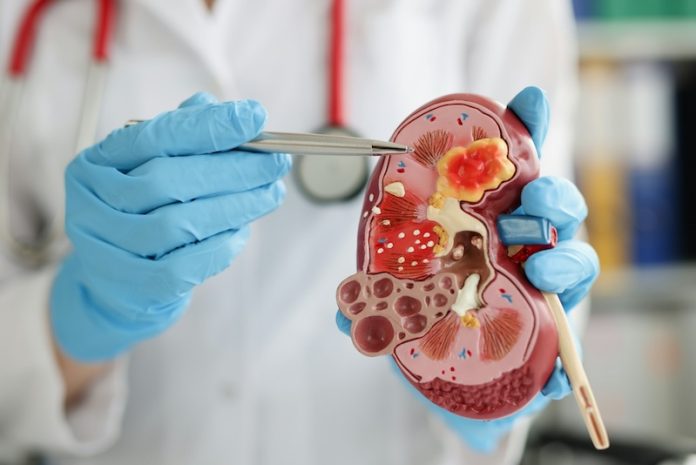
A study from the University of Virginia suggests that long-term use of certain medications commonly prescribed for high blood pressure and heart failure may contribute to kidney damage.
These findings, while significant, underline the need for more research to understand the potential long-term effects of these drugs, which include widely used ACE inhibitors and angiotensin receptor blockers (ARBs).
High blood pressure, or hypertension, is a global health challenge affecting over a billion people. Left untreated, it can lead to severe complications, including kidney damage.
Researchers in this study focused on why severe high blood pressure often leads to thickening of the arteries and small blood vessels in the kidneys, which can eventually harm kidney function.
Their investigation highlighted the role of specialized kidney cells known as renin cells. Normally, these cells produce renin, a hormone crucial for regulating blood pressure.
However, when harmful changes occur in these cells, they invade the walls of kidney blood vessels, causing a cascade of problems.
The invading renin cells trigger the buildup of smooth muscle cells, which thicken and stiffen the blood vessels. This process restricts blood flow through the kidneys, impairing their ability to function properly.
The researchers also found that drugs targeting the renin-angiotensin system, such as ACE inhibitors and ARBs, can lead to similar changes in the kidneys over time.
These medications, which are often prescribed to treat high blood pressure, heart failure, and heart attack, have been life-saving for millions of patients.
However, the study observed that long-term use was associated with hardened kidney blood vessels in both laboratory mice and human patients.
Despite these findings, the researchers emphasized that patients should not stop taking these medications. The benefits of ACE inhibitors and ARBs in managing life-threatening conditions far outweigh the potential risks for most people.
However, the study calls for further research to better understand how these drugs might contribute to kidney damage over the long term and to explore strategies for minimizing such effects.
This study, led by Dr. Maria Luisa Sequeira Lopez and published in JCI Insight, highlights the delicate balance between the benefits and risks of common blood pressure treatments.
For now, patients should continue to follow their healthcare providers’ advice while staying informed about emerging research.
The findings also underscore the importance of maintaining kidney health through a combination of medication, a healthy lifestyle, and regular medical checkups.
Simple dietary changes, like reducing processed foods and managing salt intake, can help protect kidney function. As research evolves, it will provide clearer guidance on how to manage these critical medications while minimizing potential long-term side effects.
If you care about blood pressure, please read studies about unhealthy habits that could increase high blood pressure risk, and people with severe high blood pressure should reduce coffee intake.
For more information about blood pressure, please see recent studies that early time-restricted eating could help improve blood pressure, and results showing plant-based foods could benefit people with high blood pressure.
Copyright © 2024 Knowridge Science Report. All rights reserved.



